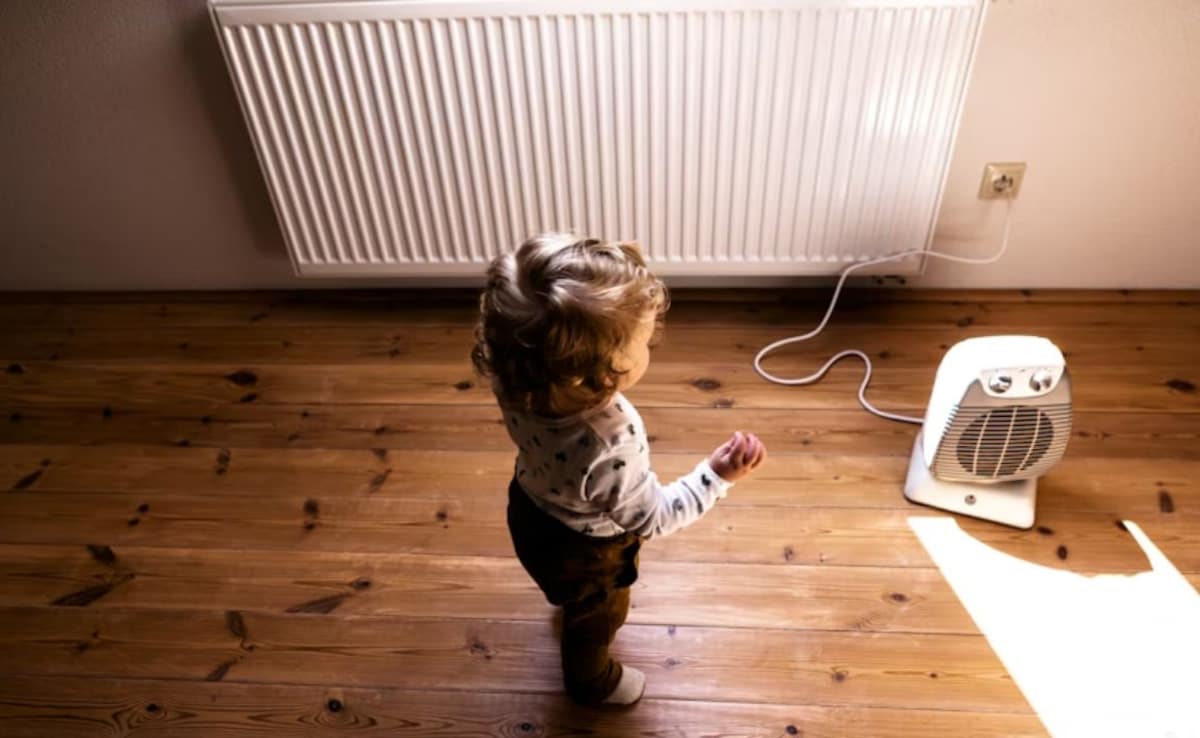
Temperature has been dipping across the country, and with that, people have begun to use room heaters. The Indian Meteorological Department (IMD) said that Delhi recorded its lowest temperature of the season at 8.7 degrees Celsius on Monday (November 17). "The minimum temperature of 8.7 degree Celcius was 3.6 notches below normal, with humidity at 92% at 8:30 a.m. The maximum temperature is expected to settle around 26 degree Celcius under mostly clear skies," said IMD.
While room heaters help you stay warm and cosy during the cold winter days, it has its own set of side effects. If not used with precautionary measures, room heaters can turn out to be fatal. While there are no official statistics, a study published in the Journal Of Family Medicine and Primary Care said that there were a total of 56 deaths (41 males and 15 females) due to fatal carbon monoxide poisoning during the 15 years. Of these, 53 cases were reported during the winter months, from November to February.
What happens when you use room heaters?
While room heaters can be helpful during the colder months, it comes with its own side effects. Read on to know what happens when you use room heaters.
Dryness and Irritation
Room heaters tend to reduce humidity levels, which makes the air dry. This can lead to problems such as dry skin, dry eyes and dry throat. The dryness can also increase the risk of respiratory irritation and worsen conditions like asthma, allergies and nasal congestion.
Respiratory Problems
The dry air from heaters can be a problem for people with respiratory conditions like asthma and bronchitis. It may lead to coughing, shortness of breath, and increase the risk of infections caused due to irritation of airways.
Allergens and Dust
Room heaters tend to disturb the dust and allergens in the air. This circulation can cause allergies and respiratory symptoms, particularly for people who are sensitive, since the heater's warm airflow keeps such particles suspended in the air.
Carbon Monoxide Poisoning
Heaters can release carbon monoxide, which is a colourless, odourless gas that is dangerous and potentially lethal. Poor ventilation increases the risk of poisoning. The symptoms of carbon monoxide poisoning are headache, dizziness, nausea, confusion, and weakness, which can lead to unconsciousness or death.
Fire Hazards
Improper use, faulty wiring, or closeness to flammable objects can lead to overheating and fire risks. Accidents resulting from such hazards pose serious threats to life as well as property. Therefore, it is crucial to use room heaters with safety measures.
Tips To Keep Yourself Protected While Using Room Heaters
Follow these tips to keep yourself protected while using a room during the winter months.

Room Heater Precautionary Measures
Photo Credit: Unsplash
Maintain a Safe Distance
Always maintain at least three feet of distance around your room heater. Make sure to keep the heater away from flammable items such as curtains, furniture, bedding, and papers. This helps prevent accidental fires, while also allowing it to operate efficiently.
Place on a Stable, Flat Surface
Set your room heater on the floor and make sure the surface is flat and stable. Don't place it on a table, stool or carpet. This reduces the risk of the heater tipping over, overheating, or falling and causing burns or fires.
Don't Use Near Water and Humid Areas
Never use a room heater in areas with high humidity such as bathrooms or kitchens. Water exposure can lead to electrical shock and short-circuiting, and also damage the appliance.
Do Not Leave Unattended
Always turn off and unplug your heater when leaving the room or going to sleep. Unattended heaters can overheat or become hazardous. Sleeping with your room heater on can cause carbon monoxide poisoning if the room is not well-ventilated.
Use Proper Electrical Connections
Plug your heater directly into a wall outlet, and avoid using extension cords or power strips. This may cause overheating and fire hazards. Also, make sure the cord and socket are not damaged.
Disclaimer: This content including advice provides generic information only. It is in no way a substitute for a qualified medical opinion. Always consult a specialist or your own doctor for more information. NDTV does not claim responsibility for this information.
Track Latest News Live on NDTV.com and get news updates from India and around the world

